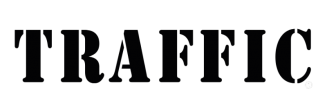Tech companies take down 3 million online listings for trafficked wildlife
WASHINGTON, DC, USA, 2nd March 2020 – Online technology companies in the Coalition to End Wildlife Trafficking Online reported removing or blocking over 3 million listings for endangered and threatened species and associated products from their online platforms to date. These listings included live tigers, reptiles, primates and birds for the exotic pet trade, as well as products derived from species like elephants, pangolins and marine turtles.
Offline and in the Wild, a report released today about progress made by companies involved in the World Wildlife Fund (WWF), TRAFFIC and International Fund for Animal Welfare (IFAW)-convened coalition, finds that efforts taken by these companies are helping to shut down the cloud-based trade routes cybercriminals rely on for exploiting wildlife.
“eBay has been fighting online wildlife trafficking on our marketplace for over a decade,” said Mike Carson, Director of Global Policy and Regulatory Management at eBay. “We’re collaborating with government agencies, NGOs, industry peers and members of the eBay community to help us enforce our Animal and Wildlife Products policy in alignment with the Coalition’s wildlife policy framework, and it’s working. In 2019, we blocked or removed over 165,000 listings globally that are prohibited under this policy.”
The Coalition’s progress has resulted from strengthened wildlife policies, an increase in staff ability to detect potential illegal wildlife products and live wild animals, regular monitoring and data sharing from wildlife experts, reports sent in by volunteers through the Coalition’s Wildlife Cyber Spotter Program, enhanced algorithms—thanks to key search word monitoring and collation—and shared learning.
“Criminal networks are taking advantage of internet platforms at the expense of the rarest species nature has to offer,” said Crawford Allan, Senior Director for TRAFFIC at WWF. “But the vastness of the internet presents a challenge for law enforcement to regulate. The online companies in our Coalition now have the tools to fight back against wildlife trafficking online, and can help ease the burden on law enforcement.”
The Coalition to End Wildlife Trafficking Online was born out of the global proliferation of internet access and resulting shift in illegal wildlife trade transactions from physical to online markets. The extensive number of listings removed by the Coalition’s second anniversary demonstrates both the long-term effectiveness of the partnership and the continued commitment of the companies to prevent wildlife trafficking on their platforms.
According to Tania McCrea-Steele, International Project Manager, Wildlife Crime at IFAW, “Uniting online technology companies is critical in the fight against wildlife cybercrime as wildlife traffickers are abusing the anonymity of the internet to exploit endangered wildlife. Tragically, you can find elephant ivory, pangolin scales, live tiger cubs, live birds and reptiles and more, all for sale on your smart phone. The online technology companies are a core part of the solution as they are able to work at an unprecedented global scale and disrupt illegal wildlife trafficking.”
In addition to blocking or removing illegal wildlife trade related information, Coalition companies have launched user engagement initiatives to promote wildlife conservation reaching millions of internet users.
“Wildlife crime is a widely recognised global problem which demands a global solution,” said Siyao, Security Expert at Alibaba. “The Coalition provides a platform for online technology companies to contribute to this solution together. At Alibaba, we share our lessons learned and continuously learn from other Coalition members on how to better curb and prevent wildlife trafficking online by investing in innovative technology and engaging the public to join the fight for wildlife.”
Individuals can join the fight against wildlife cybercrime and support the efforts of the Coalition to End Wildlife Trafficking Online by not buying wildlife products and reporting suspicious wildlife listings online to companies. Prohibited wildlife products found online can be flagged for removal at https://www.endwildlifetraffickingonline.org/.
WWF, IFAW and TRAFFIC train citizen science volunteers on how to identify prohibited wildlife products online through the Coalition’s Wildlife Cyber Spotter Program. So far, Coalition Cyber Spotters in the U.S., Germany and Singapore have flagged over 4,000 prohibited listings for sale online. These listings have been removed in real time by Coalition company enforcement teams. Through the program, Cyber Spotters have helped uncover new seller keywords and identify wildlife trafficking trends that have helped companies’ ongoing monitoring efforts.
Interested individuals can sign up for the Wildlife Cyber Spotter Program at https://www.endwildlifetraffickingonline.org/get-involved.
About TRAFFIC

TRAFFIC is a leading non-governmental organisation working to ensure that trade in wild species is legal and sustainable, for the benefit of the planet and people.
WWF

WWF is an independent conservation organization, with over 30 million supporters and a global network active in over 100 countries. WWF's mission is to stop the degradation of the Earth's natural environment and to build a future in which humans live in harmony with nature, by conserving the world's biological diversity, ensuring that the use of renewable natural resources is sustainable, and promoting the reduction of pollution and wasteful consumption. Visit www.panda.org/news for the latest news and media resources and follow us on Twitter @WWF_media.
About IFAW (International Fund for Animal Welfare)

The International Fund for Animal Welfare is a global non-profit helping animals and people thrive together. We are experts and everyday people, working across seas, oceans, and in more than 40 countries around the world. We rescue, rehabilitate and release animals, and we restore and protect their natural habitats. The problems we’re up against are urgent and complicated. To solve them, we match fresh thinking with bold action. We partner with local communities, governments, non-governmental organisations and businesses. Together, we pioneer new and innovative ways to help all species flourish. See how at ifaw.org.





